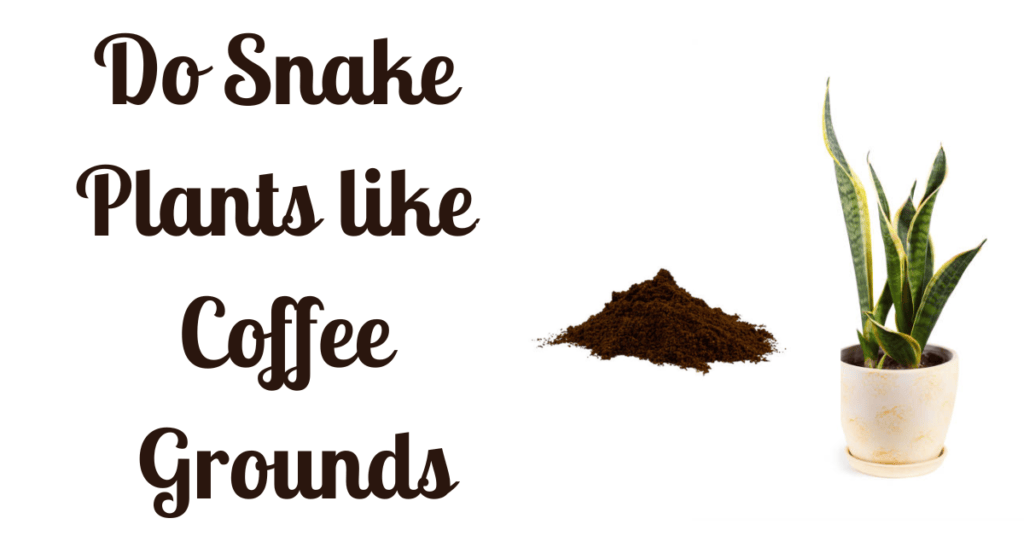Have you ever wondered if Roses like Coffee Grounds?
As gardening enthusiasts seek innovative ways to nourish their plants, whether roses thrive with coffee grounds has piqued my curiosity.
Roses generally appreciate the addition of coffee grounds to their soil, as the feet act as a beneficial organic amendment
Coffee grounds contain nitrogen, a critical nutrient promoting healthy plant leaf and stem growth.
The acidity of the coffee grounds is also favorable for roses, as they prefer slightly acidic soil.
Some individuals creatively consume coffee grounds by incorporating them into recipes for added flavor and depth.
When used as a mulch or incorporated into the soil, coffee grounds can enhance water retention and drainage, creating an optimal environment for rose bushes.
Additionally, coffee grounds serve as a natural deterrent for specific pests.
They can contribute to the soil’s overall health by adding organic matter.
However, using coffee grounds in moderation is essential, as excessive amounts may lead to soil acidity imbalance.
Thus, incorporating coffee grounds into the soil can be a sustainable and beneficial practice for nurturing vibrant and flourishing rose gardens.
In this exploration of horticultural practices, we’ll delve into the relationship between roses and coffee grounds, unraveling the potential benefits or considerations for incorporating this unconventional element into your garden.
Table of Contents
Do Roses like Coffee Grounds: Understanding Rose Bushes like Coffee Grounds Or Not?

The affinity between rose bushes and coffee grounds has long intrigued gardeners seeking effective and sustainable ways to enhance their floral haven.
Advocates of using coffee grounds argue that they contribute valuable organic matter to the soil, fostering improved water retention and aeration.
Rich in nitrogen, coffee grounds are a potential fertilizer to encourage luscious foliage and abundant blooms in rose bushes.
However, it’s essential to exercise caution in application, as excessive amounts may alter the soil’s pH, potentially affecting the overall health of the roses.
You can grind coffee beans in a blender to make coffee grounds for your roses.
Food processors grind beans as well.
Do Desert Roses like Coffee Grounds?
Desert Roses (Adenium obesum), also known as Sabi Star, Kudu, or Mock Azalea, are succulent plants native to arid regions of Africa and the Arabian Peninsula.
They are well adapted to dry conditions and have specific requirements for soil and watering.
While some plants benefit from coffee grounds, Desert Roses may not necessarily thrive with them.
Coffee grounds can be acidic and contain some nutrients that plants can use, such as nitrogen.
However, Desert Roses prefer well-draining soil with a slightly acidic to neutral pH.
Using coffee grounds in moderation is okay, but excessive use could make the soil too acidic, which may not be ideal for these plants.
It’s essential to monitor the pH of the soil and adjust accordingly to meet the specific needs of Desert Roses.
Additionally, providing a well-balanced, succulent-friendly fertilizer is a good practice for promoting healthy growth.
Always remember that individual plant responses can vary, so it’s good to observe how your Desert Rose reacts to any changes you make in its care routine.
If you’re unsure, it’s best to avoid caution and consult with experienced gardeners or horticulturists for advice tailored to your specific situation.
Do Mini Roses like Coffee Grounds?

Like their larger counterparts, Miniature roses generally prefer slightly acidic to neutral soil conditions.
Coffee grounds can be used as a source of organic matter and can provide some nutrients to the soil.
Coffee grounds tend to be slightly acidic, and while this acidity can benefit some plants, including roses, excessive use may lower the soil pH too much.
Miniature roses, like other rose varieties, typically thrive in soil with a pH ranging from 6.0 to 6.5.
If you use coffee grounds, mix them into the soil or apply them as a top dressing.
Additionally, balance coffee grounds with other organic amendments to maintain a well-draining and fertile growing medium.
Regularly monitor the soil pH to ensure it stays within the preferred range for miniature roses.
As always, observe how your plants respond to changes in their care routine and adjust accordingly.
Suppose you have specific concerns about your miniature roses.
In that case, it’s advisable to consult with experienced gardeners or local horticulturists for personalized guidance.
Make sure you use fresh coffee grounds for your rose. These grounds expire, too.
Do Miniature Roses like Coffee Grounds?
Yes, miniature roses can benefit from using coffee grounds as a soil amendment.
Coffee grounds are rich in organic matter and contain some essential nutrients, such as nitrogen.
They can improve soil structure and water retention and provide a slow-release source of plant nutrients.
While they are slightly acidic, the acidity is usually not significant enough to harm miniature roses.
In fact, the edge can be beneficial for acid-loving plants.
Be cautious not to overdo it, as excessive coffee grounds could lead to soil acidity issues.
To use coffee grounds, you can mix them into the soil or apply them as a mulch around the base of the plants.
This can help improve the overall soil quality and contribute to the health of your miniature roses.
As with any soil amendment, it’s a good idea to monitor your plants’ health and the soil’s ph.
If you notice any adverse effects, you can adjust the number of coffee grounds or consider other amendments to maintain a balanced growing environment for your miniature roses.
How often Should you put Coffee Grounds on Roses?

There are a few straightforward methods to nourish your roses with coffee grounds, allowing them to enjoy a caffeine boost safely.
Scatter Around the Rose Bush:
The easiest way to use coffee grounds for your roses is to gently scatter them over the soil beside the rose plant, avoiding direct contact with it.
This method is quick and requires no planning, as you can do it once the coffee grounds have cooled.
However, it may not ensure an even distribution of settings, and there is a risk of using too much.
Pros:
- Easy and quick.
- No planning is required.
Cons:
- Uneven distribution.
- Risk of excessive use.
Mix with Sand:
Combining coffee grounds with sand, which is beneficial for drainage, can significantly enhance the overall soil quality of roses.
Steps:
Mix coffee grounds and sand in a container (e.g., a bucket).
Scatter the mixture around the rose, reaching even the outer roots by observing the leaves’ outer margins.
Dos and Don’ts:
- Do not dig the mix into the soil to avoid soil disturbance.
- Avoid tilling to preserve the soil’s richness and protect surface roots.
- Let rain and worms naturally incorporate the mixture into the ground for a gradual and safe nutrient release.
Considerations:
- The quantity of sand depends on your soil’s drainage improvement needs.
- It’s crucial to be mindful of the potential risks of nutrient toxicity, particularly with nitrogen-rich coffee grounds.
- Excessive use can lead to issues like burning tender roots and yellowing/drying leaves.
- Monitoring your roses’ health and adjusting your approach is essential for optimal results.
Benefits of Coffee Grounds for Roses

Coffee grounds emerge as a rich reservoir of essential nutrients crucial for the thriving health of plants, roses included.
These grounds boast diverse elements such as nitrogen, calcium, potassium, iron, phosphorous, magnesium, and chromium.
Among these nutrients, coffee grounds stand out as an outstanding source of nitrogen—the primary nutrient that roses, like many other plants, crave for optimal growth and vitality.
Embracing coffee grounds in your gardening routine can thus be a strategic and natural way to nourish your roses with the essential elements they need to flourish.
Mitigate Soil Contaminants
Roses, delicate as they are, can be adversely affected by soil contaminants and hefty metals that jeopardize their well-being.
These contaminants have detrimental effects, such as eradicating beneficial soil bacteria, hindering direct plant growth, inducing DNA mutations, and weakening the rose’s root system.
Living near pollution sources like incinerators, refineries, or high-traffic areas can exacerbate this issue.
Here’s where coffee grounds come to the rescue—used and charred coffee grounds act as a buffer, absorbing heavy metals and preventing their absorption by your roses, known for their sensitivity to pollution.
The advantageous effects of coffee grounds extend beyond contamination mitigation—there are two more noteworthy benefits to explore!
Enhance Soil Structure and Foster Soil Ecology
Coffee grounds prove invaluable in enhancing soil health, and your roses will thrive in gratitude.
How does this work? Coffee grounds have a magnetic appeal to earthworms, and the positive impacts of these underground creatures on your soil are numerous:
- Feeding the Soil: Earthworms contribute to soil fertility, enriching it with nutrients.
- Aerating the Soil: By creating holes, earthworms facilitate better breathing for the soil.
- Improving Drainage: Enhanced soil drainage is a direct result of earthworm activity.
- Developing Ideal Conditions: Earthworms pave the way for the flourishing of other beneficial microorganisms in the soil.
Whether your soil faces infertility issues, looks sterile, has a heavy clay composition, or has been neglected, coffee grounds offer an excellent remedy for improvement.
Mulch to Enhance Drainage
Coffee grounds are a game-changer in the quest for well-drained soil that roses adore.
Their delicate texture facilitates the breakdown of compacted clay, akin to the action of sand.
Unlike conventional solutions like gravel, coarse and fine sand, combined with coffee grounds, are highly effective in breaking up soil lumps and improving drainage.
The grainy composition of coffee grounds contributes to soil aeration, making them an ideal addition to enhance the overall quality of your rose garden.
Nourishing the Soil Ecosystem
Roses thrive when enriched with organic materials like coffee grounds and leaf mulch. This infusion improves soil structure and nurtures the soil’s ecosystem, fostering the activity of essential elements such as earthworms and microbes.
These microorganisms are crucial in breaking down organic matter into a readily absorbable form for the rose’s roots.
The magic of organic material lies in its water-retention capacity coupled with adequate drainage.
This equilibrium is vital for roses, which prefer well-draining soil that can retain and release water as needed.
The organic matter strikes a perfect balance, holding moisture while permitting excess water to drain away, preventing waterlogging that could harm the rose’s root system.
Coffee grounds, mainly, are a gourmet delight for local worm populations.
Worms, the unsung heroes of soil aeration, transform compacted soil, improving its structure and drainage.
In areas with high worm activity, soil drainage can be up to 10 times faster than in worm-deprived regions.
This natural channeling helps roses sidestep issues like root rot, especially in heavy or slow-draining soil.
As worms feast on coffee grounds, their castings concentrate essential nutrients and minerals, enhancing nutrient availability to the rose’s roots.
The intricate tunnels and casts left behind by worms create pathways for rose roots to delve deeper into the soil.
This results in improved stability, better access to moisture, and increased nutrient absorption, ultimately contributing to a healthier and more drought-resistant rose.
Natural Pest Repellent:
Beyond nourishing your roses, coffee grounds are a natural defense against unwanted pests.
The aromatic properties of coffee create a protective shield, deterring pests like ants and slugs.
This dual-purpose quality enhances your rose garden’s overall health and aesthetics by ensuring a pest-free environment for your prized blooms.
Enhanced Flowering:
The nutrient-rich composition of coffee grounds, notably nitrogen, acts as a catalyst for robust growth, leading to a spectacular display of flowers.
With regular application of coffee grounds, your roses are not just healthy but also bloom with increased vigor, producing an abundance of vibrant and captivating flowers that become the focal point of your garden.
Issues With Using Coffee Grounds For Roses

Using coffee grounds for roses can pose potential issues if not managed carefully.
The acidity of coffee grounds may lead to soil pH imbalances, adversely affecting rose growth.
Excessive nitrogen content in coffee grounds can result in nutrient imbalances, causing problems like yellowing leaves.
Uneven distribution and overapplication may contribute to nutrient toxicity, harming the plant’s roots.
Additionally, the moisture-retaining properties of coffee grounds could create conditions conducive to mold growth, potentially leading to fungal diseases.
To mitigate these concerns, it’s crucial to apply coffee grounds in moderation, monitor soil pH, combine them with other organic matter, ensure proper drainage, and closely observe the plant’s health for any signs of stress or pest attraction.
Can You Feed Fresh Coffee Grounds to Roses?

While the general advice is to avoid using unused grounds directly with roses, there are exceptions to the rule.
If you’re not an experienced gardener, following the safer, more general approach mentioned earlier is still advisable.
However, suppose your soil is excessively alkaline, surpassing the rose’s tolerance level (above 7.5).
In that case, fresh coffee grounds can correct this imbalance.
Should you decide to adjust the soil acidity for your roses, exercise caution by avoiding the direct application of fresh grounds near the plant?
Instead, maintain a safe distance, allowing the settings to gradually integrate into the soil. Placing them too close may risk burning your roses.
In such cases, proceed cautiously, introducing fresh coffee grounds gradually and in small amounts.
Only consider this approach if the alkalinity of the soil is genuinely detrimental to your plant and you possess sufficient gardening experience.
Always prioritize the well-being of your roses and approach soil amendments judiciously.
Do Coffee Grounds Change the Color of Roses?

The impact of coffee grounds on the color of roses is minimal and generally insignificant.
While coffee grounds contain some acidic compounds, the overall effect on soil pH is limited, and any potential change in rose color would be subtle.
Roses typically exhibit a range of colors based on their genetic makeup, which is influenced by factors such as sunlight, soil composition, and general care.
While soil acidity can affect the availability of specific nutrients to plants, leading to subtle changes in color, the influence of coffee grounds is usually not potent enough to result in a dramatic shift.
Suppose your roses are naturally predisposed to produce certain pigments. In that case, that genetic factor will play a more substantial role in determining their color.
Notably, soil pH adjustments influencing flower color are more relevant in plants like hydrangeas, where acidity or alkalinity can noticeably impact the bloom color.
In summary, while coffee grounds can contribute to the overall health of roses by providing organic matter and some nutrients, any potential impact on flower color is likely to be subtle and secondary to genetic and environmental factors.
If you’re specifically aiming for a specific color in your roses, choosing rose varieties with the desired color characteristics and providing optimal growing conditions will have a more significant influence.
Do Roses like Coffee Grounds as Fertilizer?
Effectively utilizing coffee grounds as a fertilizer for roses requires a balanced approach to avoid potential negative impacts.
While coffee grounds can be beneficial due to their high nitrogen content, moderation is vital to prevent root damage and other adverse effects.
Distribute approximately half a pound of coffee grounds around the base of each mature rose plant, followed by water with 2 gallons of water (equivalent to a standard watering can).
- Sprinkle half a pound (2 cups or 500 grams) of coffee grounds around the soil surrounding each rose plant.
- Water the dirt in with 2 gallons of water, ensuring even distribution.
- Avoid digging the feet into the soil to prevent roots and soil structure disruption.
- The presence of worms will naturally work the coffee grounds into the soil, enhancing nutrient availability.
- Apply this method once at the beginning of the growing season (Late April/early May).
- Late-season application could stimulate delicate leaf growth susceptible to winter frost damage.
Do Roses like Coffee Grounds: FAQS
Are Coffee Grounds Reasonable for Climbing Roses?
Coffee grounds boost rose nitrogen but adjust soil pH with lime for acidity.
Do Roses like Banana Peels?
Roses benefit from banana peels; use them as a winter-friendly supplement for improved growth.
Are Eggshells Good for Roses?
Eggshells provide calcium for roses but are only beneficial if there’s a deficiency; used in moderation as a micronutrient.
Are Tea Bags Good for Roses?
Used tea bags benefit roses by promoting nitrogen in the soil, making them a worthwhile addition to plant growth.
Wrapping Up!
In conclusion, roses like coffee grounds is a fascinating exploration of gardening and horticulture.
As with any gardening advice, conducting thorough research and considering multiple sources before incorporating coffee grounds into your rose care routine is advisable.
Gardening is a dynamic and complex endeavor, influenced by various factors such as soil composition, climate, and plant variety.
Experimentation and observation in your gardening context will ultimately guide the best practices for nurturing healthy and vibrant roses.







